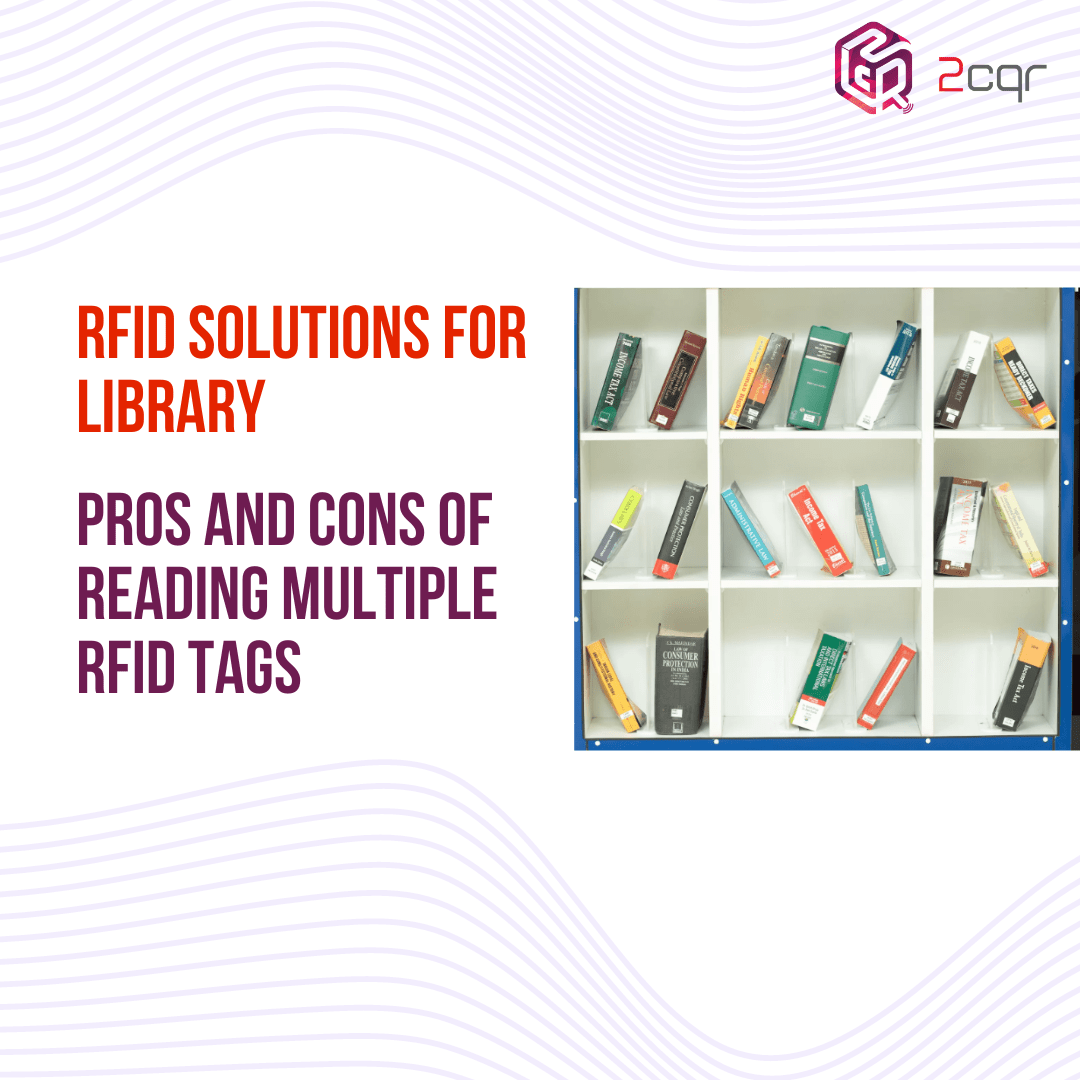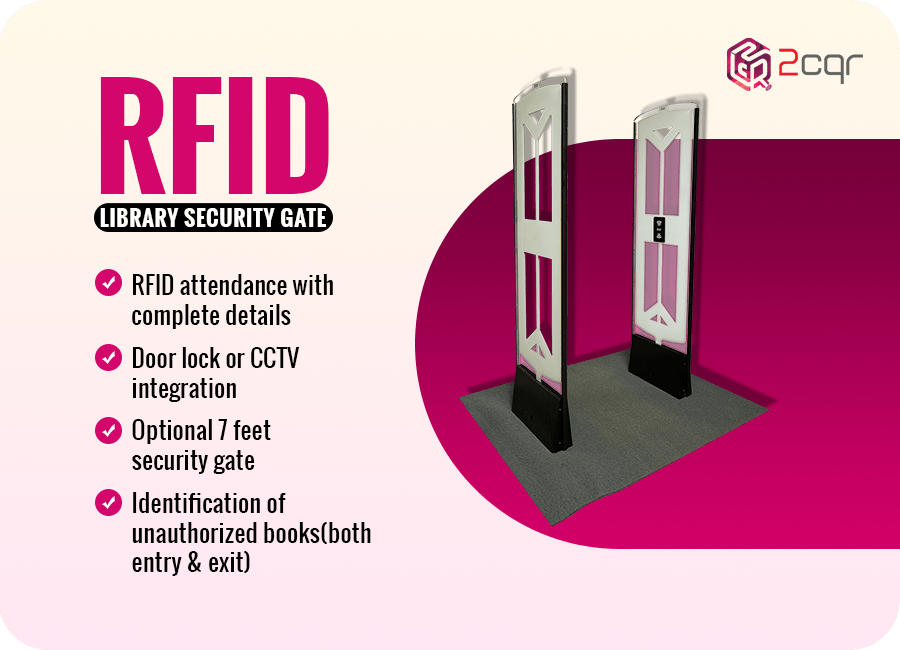
In the realm of library management, if RFID solutions are the game changer, then RFID tags are the fuel propelling efficient operations and delivering exceptional user experiences.
However, a never ending debate among experts centers around the benefits and drawbacks of reading multiple passive RFID tags simultaneously.
In this article, we’ll delve into the pros and cons of this practice in library settings.
Pros of Reading Multiple Tags:
1.Efficiency: Efficiency is a paramount goal for any library implementing RFID technology. Reading multiple tags expedites inventory checks and enhances the checkout process, translating to reduced wait times for patrons with more efficiency. Additionally, this efficiency empowers library staff to organise inventory more effectively.
2. Accuracy: Reading multiple RFID tags in libraries ensure precise identification of items, minimizing errors in readability. This accuracy bridges the gap between physical inventory and digital records, bolstering catalog maintenance and aligning resource availability with subscriber demand.
3. Personalization: Personalized recommendations are the best element without any second thoughts. Multiple tag reading enables deep monitoring of patron activities, paving the way for tailored suggestions and services. This personalization enriches user engagement and satisfaction.
4. Enhanced Security: Addressing data security concerns is critical for libraries considering RFID adoption. Multiple tag reading can bolster security measures by monitoring numerous resources simultaneously. This capability aids in detecting unauthorized removal of items or theft before getting too late.
5. Automation: Modern library management extends beyond simple book transactions. To fulfill user demands and maintain well-organized resources, tracking returned books and shelving them accurately is essential. Reading multiple tags streamlines processes like sorting returns and restocking shelves, freeing staff for more valuable tasks.
Cons of Reading Multiple Tags:
1.Cost: While RFID technology itself comes with a price tag, implementing multiple tag systems escalates costs due to additional equipment and potential changes in system design. The expense may further rise if specialized software and expert assistance are required.
2. Complexity: Understanding RFID system functionality is crucial for seamless operations. Managing multiple RFID tags in libraries and technologies introduces complexity to library procedures, necessitating intensified staff training and technical support.
3. Compatibility: Compatibility stands as a significant hurdle when implementing changes to the RFID system. Different tag technologies may not sync with all devices, leading to compatibility issues that can hinder readability and system functionality.
4. Interference: Tag interference can disrupt readability, particularly if unsupported RFID tags are used for resources containing metal materials. In certain scenarios, multiple tags might interfere with each other, causing read errors and diminishing identification accuracy.
5. Privacy Concerns: Although multiple tag reading enhances security, it can raise privacy concerns if employed to continuously monitor patron actions such as reading habits. Transparent communication with users and obtaining their consent is crucial to maintain user trust and library reputation.
6. Maintenance: Maintaining multiple tag systems, with their diverse technologies, can pose challenges for ongoing updates and upkeep, potentially leading to service disruptions.
In Conclusion:
While reading multiple RFID tags in libraries offers undeniable benefits like efficiency, accuracy, and personalization, it also presents challenges such as cost, complexity, and privacy considerations.
Libraries must carefully evaluate these pros and cons when contemplating the adoption of multiple tag systems. By doing so, libraries can make informed decisions that optimise their operations and user experiences.


